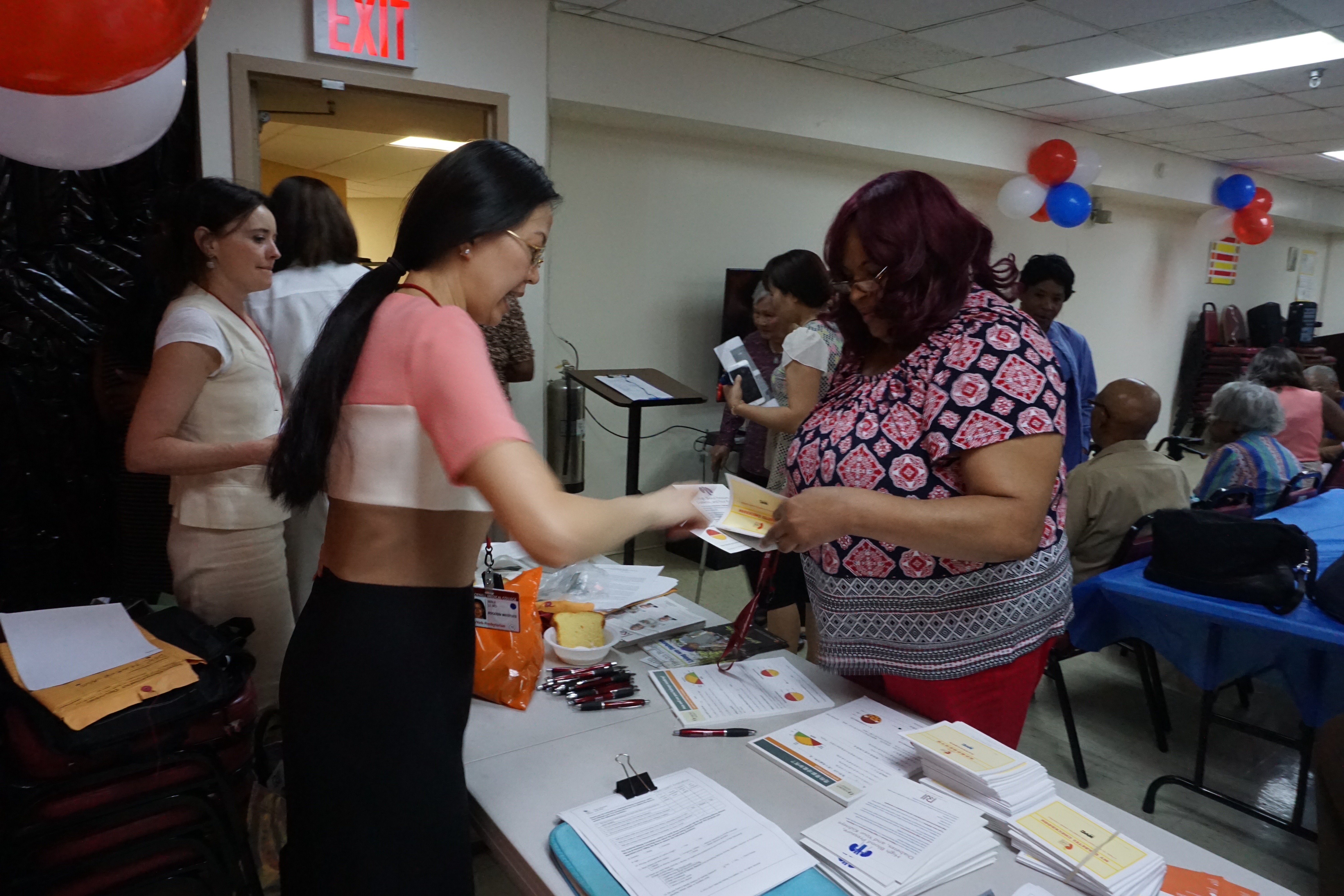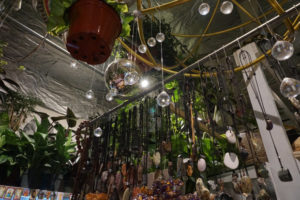Hi again from New York! It’s hard to believe the summer of my dreams is already halfway through. So far I’ve been to all 5 boroughs, eaten with a food critic in Queens, made a few mini trips (totaling 7 states), met 3 famous people (a politician, an artist, and an actor), and have attended dozens of free summertime events. But back to the internship…
 I am definitely making progress on my defined learning goals. In my meetings with community members from all of the greater new york area, I am practicing interacting sensitively, effectively, and professionally with individuals from diverse cultural, socioeconomic, and educational backgrounds, and with people of all ages and lifestyle preferences. I also am developing as a public health professional and building my network in New York with inspiring women, New York Presbyterian and Cornell-Weill affiliated professionals, and even a couple Tulane alum. Another one of my goals was to identify the basic public health sciences used in this internship, including biostatistics, epidemiology, environmental health, and prevention of chronic disease. This has come up a lot and I find myself thinking (outloud sometimes too), “Wow! I’ve read about this in a textbook.” Topics like the Affordable Care Act and Medicare/Medicaid funding that were only discussed theoretically in my Foundations of Healthcare Systems class, are concepts that I now have real world-experiences to ground me in. This June the Obama Administration, as well as dozens of companies, foundations, universities, hospitals, and patient advocacy organizations are taking steps to build on the Administration’s efforts to improve outcomes for individuals waiting for organ transplants and support for living donors. Dr. David Serur, Medical Director for the Kidney and Pancreas Transplant program represented Rogosin at the summit. Rogosin, one of three not-for-profit dialysis providers represented, committed to launch a program this summer (which I will be assisting in) with 100 community volunteers to promote kidney transplantation through culturally-specific grassroots education and mobilization in high disease-burden areas of Brooklyn, New York. Each day, I am improving my communication skills via email, in person meetings, and in more informal gatherings. I keep a journal to not only see what I’ve learned, but also to reflect on my growth. Amongst the doodles and mediocre subway poetry, there are pieces of reflection – I promise!
I am definitely making progress on my defined learning goals. In my meetings with community members from all of the greater new york area, I am practicing interacting sensitively, effectively, and professionally with individuals from diverse cultural, socioeconomic, and educational backgrounds, and with people of all ages and lifestyle preferences. I also am developing as a public health professional and building my network in New York with inspiring women, New York Presbyterian and Cornell-Weill affiliated professionals, and even a couple Tulane alum. Another one of my goals was to identify the basic public health sciences used in this internship, including biostatistics, epidemiology, environmental health, and prevention of chronic disease. This has come up a lot and I find myself thinking (outloud sometimes too), “Wow! I’ve read about this in a textbook.” Topics like the Affordable Care Act and Medicare/Medicaid funding that were only discussed theoretically in my Foundations of Healthcare Systems class, are concepts that I now have real world-experiences to ground me in. This June the Obama Administration, as well as dozens of companies, foundations, universities, hospitals, and patient advocacy organizations are taking steps to build on the Administration’s efforts to improve outcomes for individuals waiting for organ transplants and support for living donors. Dr. David Serur, Medical Director for the Kidney and Pancreas Transplant program represented Rogosin at the summit. Rogosin, one of three not-for-profit dialysis providers represented, committed to launch a program this summer (which I will be assisting in) with 100 community volunteers to promote kidney transplantation through culturally-specific grassroots education and mobilization in high disease-burden areas of Brooklyn, New York. Each day, I am improving my communication skills via email, in person meetings, and in more informal gatherings. I keep a journal to not only see what I’ve learned, but also to reflect on my growth. Amongst the doodles and mediocre subway poetry, there are pieces of reflection – I promise!

Rogosin nephrologist Dr. Minji Li and and Pamela Hoyt-Hudson hand out materials after the kidney health presentation at Wayside Senior Center in Brooklyn.
I just finished writing our first monthly newsletter, The Rogosin Reader. In it, I included some of my own photography from events and have been encouraged by my boss to continue taking photos for the organization. I also wrote a piece on my Coloring for Better Health initiative. Over one third of hemodialysis patients experience clinical depression and around half of patients experience anxiety. In October 2015 Rogosin hosted a roundtable and created actionable solutions to address the mental health challenges impacting our patients. This coloring initiative is part of our Patient Enhancement Program (PEP) to alleviate the burden of Chronic Kidney Disease. I also created a Google One Today Ad that will hopefully help us raise $2,000 to have these coloring and mindfulness stations in all eight of our dialysis units. “Coloring is known to reduce stress and anxiety in chronically ill patients while exercising fine motor skills and training the brain to focus. Help our dialysis patients to unwind and achieve a near meditative state while waiting for their dialysis session to begin. Coloring book stations will transform our waiting rooms into a centers for healing and mindfulness.”
I have been particularly inspired by women across the Center for Disease Control (CDC) who have discussed their path to public health STEM careers, and encourage young women like myself to pursue professions in these traditionally male dominated fields. The Rogosin Institute focuses on kidney disease (transplantation and prevention). Though these issues are primarily tackled by men for men, I am primarily working with women (supervisor and co-workers) and our clientele is largely women of color. This work environment in it of itself breaks gender standards and is helping me develop as a female leader.






